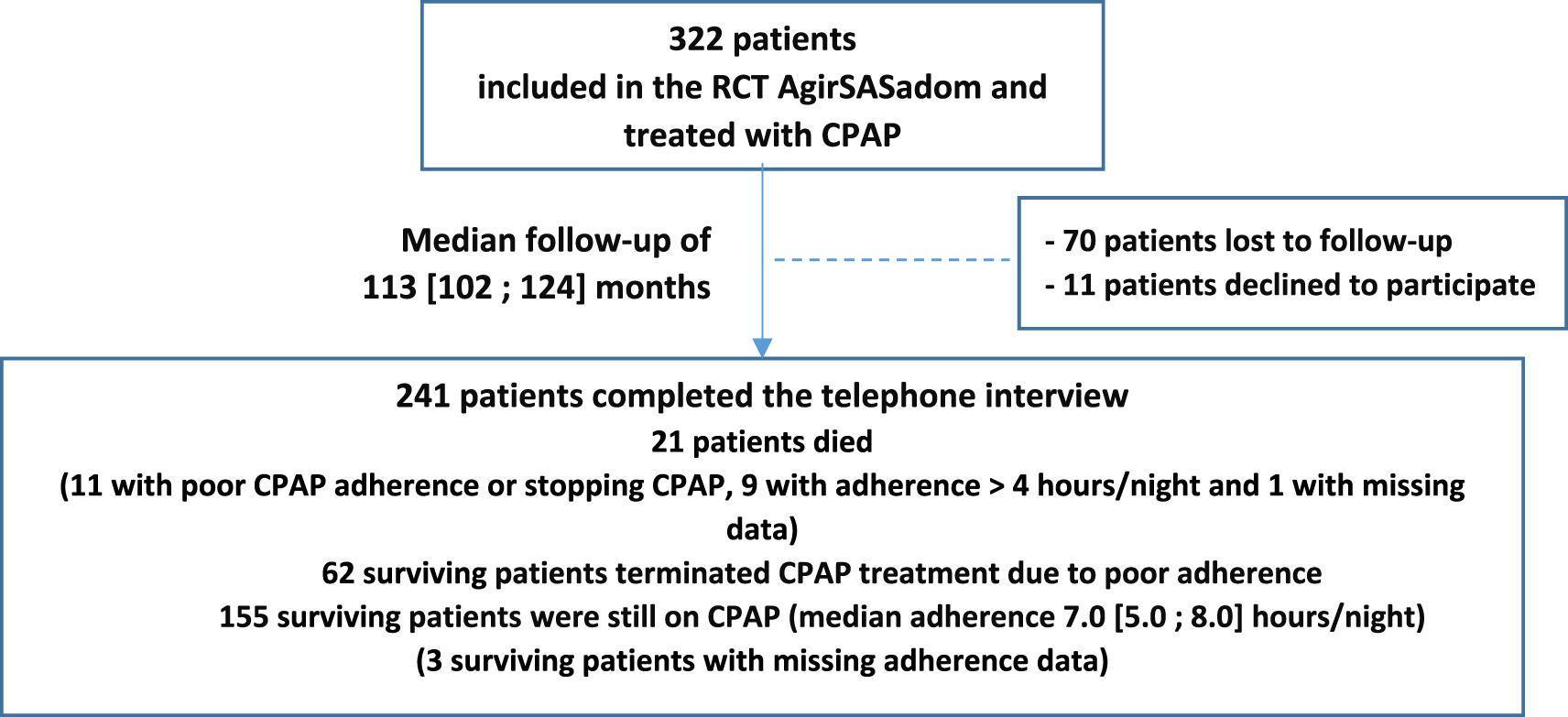Ami-Marie Bocoum, Sébastien Bailly, Marie Joyeux-Faure, Sébastien Baillieul, Francois Arbib, Clara-Lou Kang, Van Ngo, Pierre Boutouyrie, Renaud Tamisier, Jean Louis Pépin
- Imprimer
- Partager
- Partager sur Facebook
- Partager sur X
- Partager sur LinkedIn

Abstract
Background and objective
In randomized controlled trials, continuous positive airway pressure (CPAP) is reported as lowering blood pressure (BP) with a mean systolic blood pressure effect size of 2.5 mmHg. These trials have a median follow-up of less than 6 months. Whether this initial BP response during the first months of CPAP treatment translates into a reduction in long-term cardiovascular events and mortality is unknown.
Methods
This observational study addressed long-term hard cardiovascular outcomes and all-cause mortality in a well-defined population of 241 patients previously included in the AgirSASadom parallel randomized controlled trial (assessing whether fixed-pressure CPAP was superior to auto-adjusted CPAP in reducing BP (baseline evaluations 2010-2012)). Long-term outcomes were analyzed using a Cox survival model, and a logistic regression analysis was performed for long-term CPAP adherence.
Results
Sixty-nine cardiovascular events occurred in 61 patients during a median follow-up of 113 months (interquartile range [102 ; 124]) giving an incidence of 26 for 1000 person-years. Twenty-one (8.7%) patients died. BP values at baseline (i.e., office and 24-h BP) was a strong predictor of incident cardiometabolic events and mortality (p < 0.01) whereas initial BP response after the first four months of CPAP was not related to outcomes. Long-term CPAP adherence above 4 h/night was associated with a reduction in all-cause mortality (Log-rank P ¼ 0.02) but not in the occurrence of long-term cardiovascular events.
Conclusion
Independently of initial blood pressure response, long-term CPAP adherence is one of the prerequisites for reducing mortality.
- Imprimer
- Partager
- Partager sur Facebook
- Partager sur X
- Partager sur LinkedIn